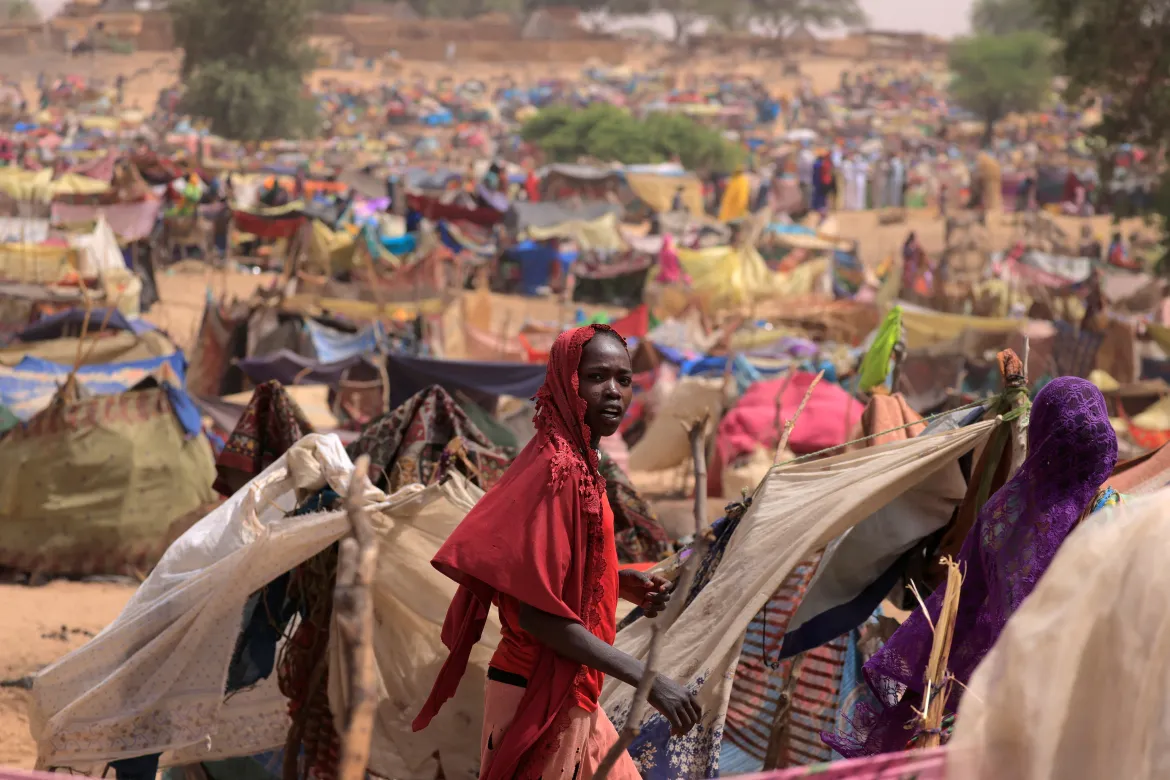
Khartoum, Sudan— Sudan is in the grips of a severe humanitarian crisis, with over 25 million people—more than half of the country’s population—desperately in need of aid. The ongoing conflict, which erupted in April 2023 between the Sudanese Armed Forces (SAF) and the Rapid Support Forces (RSF), has plunged the nation into chaos, exacerbating existing vulnerabilities and creating one of the worst humanitarian emergencies in the world.
The United Nations High Commissioner for Refugees (UNHCR) has issued an urgent appeal for international assistance, citing critical shortages of food, water, medical supplies, and shelter.
The Humanitarian Crisis in Numbers
1. Displacement and Refugees
- Internally Displaced: Over 5 million people have been displaced within Sudan’s borders, forced to flee their homes due to violence.
- Refugees: More than 1.5 million have sought refuge in neighboring countries, including Chad, Egypt, and South Sudan, straining resources in host nations.
2. Critical Shortages
- Food: The World Food Programme warns that millions are on the brink of famine, with food prices skyrocketing due to supply chain disruptions.
- Water: Access to clean water has become a luxury in many regions, increasing the risk of waterborne diseases.
- Healthcare: Hospitals are overwhelmed or non-functional, leaving countless people without medical care.
Conflict’s Role in the Crisis
The conflict between the SAF and RSF has intensified, with neither side showing willingness to negotiate.
- Targeted Violence: Both factions have been accused of targeting civilians, with reports of mass killings, sexual violence, and destruction of essential infrastructure.
- Regional Instability: The fighting has destabilized neighboring countries, with cross-border attacks and an influx of refugees creating new security challenges.
International Response
1. Humanitarian Aid
- UNHCR: The agency has mobilized resources but reports funding shortfalls, with only 35% of its appeal for Sudan’s crisis met.
- NGOs: Groups like Doctors Without Borders and Save the Children are on the ground but face immense logistical challenges.
2. Calls for Ceasefire
- United Nations: UN Secretary-General António Guterres has repeatedly called for an immediate ceasefire and unhindered humanitarian access.
- Quote: “The scale of human suffering in Sudan is unimaginable. The violence must stop now.”
- African Union: Urging member states to mediate between warring factions to prevent further destabilization of the region.
Reactions and Criticism
Support for Aid Efforts
- Donor Nations: Countries such as the U.S., Germany, and Japan have pledged additional aid, emphasizing the need for global solidarity.
- USAID Administrator Samantha Power: “The international community must act decisively to save lives in Sudan.”
Criticism of Global Response
- Underfunded Appeals: Critics argue that the international response has been slow and insufficient, leaving millions without basic necessities.
- Inaction on Conflict Resolution: Some accuse global powers of prioritizing their strategic interests over resolving the root causes of Sudan’s crisis.
Public Opinion: What’s True and Untrue?
- True:
- The humanitarian crisis in Sudan is one of the most severe in the world, affecting over 25 million people.
- Both SAF and RSF have been implicated in atrocities against civilians, worsening the situation.
- Untrue:
- Claims that aid alone can solve the crisis ignore the necessity of political solutions to end the conflict.
- Assertions that neighboring countries can fully absorb refugees overlook the strain on their already limited resources.
Broader Implications
1. Regional Destabilization
The conflict threatens to destabilize the Horn of Africa and North Africa, with implications for regional security and economic stability.
2. Long-Term Development Setbacks
Years of progress in education, healthcare, and infrastructure development in Sudan have been undone, setting the country back decades.
3. Global Food Security
As a key exporter of agricultural products, Sudan’s turmoil has disrupted global food markets, contributing to price volatility worldwide.
What’s Next?
1. Humanitarian Action
The international community must prioritize funding for aid organizations and establish safe corridors for delivering assistance.
2. Conflict Mediation
Regional and global powers must intensify efforts to mediate peace talks between the SAF and RSF.
3. Accountability
Ensuring accountability for war crimes and human rights violations will be critical for long-term peace and stability.
Conclusion: A Global Responsibility
Sudan’s humanitarian crisis is a stark reminder of the devastating human toll of unresolved conflicts. Immediate action is needed to address the suffering of millions, while long-term solutions must focus on achieving peace and rebuilding a shattered nation.
As Veritas World News observes, “The tragedy in Sudan is not just a national crisis; it is a call to action for the world to uphold the principles of humanity and justice.”
#SudanCrisis #HumanitarianEmergency #GlobalAid #PeaceInSudan #VeritasWorldNews

